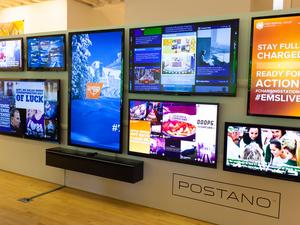
A federal jury in Oregon agreed with several major claims made by Portland-based Opal Labs in a lawsuit filed against New York-based Sprinklr but could not agree on damages.
On the heels of the verdict, Opal filed a motion for a permanent injunction against Sprinklr (NYSE: CXM) for selling any content creation or planning software developed from March 4, 2014, through today.
The latest developments result from a four-year fight between the two companies that started when Opal filed suit against Sprinklr in 2017. The suit alleges that Sprinklr, a former business partner of Opal, obtained confidential information about Opal’s software, then used it to create a competing product.
The jury found that Opal had proved three of its major claims in the suit: misappropriation of trade secrets; breach of a teaming contract and breach of a nondisclosure agreement. The jury was hung on damages. At trial Opal sought $22 million in compensatory damages and $88 million in punitive damages.
The jury was also hung on several claims including fraud and breach of terms of use.
The jury found that Opal did not prove a breach of the implied convent of good faith and fair dealing for either the terms of use or non-disclosure agreement.
“The jury’s verdict confirms what Opal has been saying for years: Sprinklr stole the key components of Opal’s software and used them in Sprinklr’s competing product. The jurors unanimously found that Sprinklr stole Opal’s trade secrets and breached its non-disclosure agreements,” said Chad Colton, attorney at Markowitz Herbold representing Opal in an email.
“The verdict sends an important message to the entire tech and startup community that this kind of behavior will not be tolerated. We look forward to the continuation of the litigation to address the fraud claim against Sprinklr and the recovery of Opal’s damages.”
The two sides will return to court in February to hash out the fraud claim and damages. A ruling on the injunction motion could come at any time.
“We continue to strenuously deny all allegations in this matter,” said Bob Carey, partner at Tonkon Torp and attorney for Sprinklr in an email, adding, “It’s not Sprinklr’s practice to comment on ongoing litigation outside of the courtroom.”
Opal makes software that allows marketing teams to collaborate and create cohesive marketing stories. During the lawsuit's time frame, Sprinklr’s software helped users manage social media accounts.
According to the third amended complaint filed in March, things came to a head in 2013 after mutual customer Nike asked the two companies to integrate their software, allowing Nike marketers to more easily use the two companies' functions together.
To do this, nondisclosure agreements were signed, a teaming agreement was signed in 2014 and a software integration agreement was signed in 2016. According to the suit, then-Nike employee Paul Herman used his customer access to obtain confidential and proprietary information about Opal’s software, then used it to help create a competing product that tied in what Opal did with Sprinklr’s tool.
By 2017, that effort become Sprinklr’s Planner 2.0, with many of its features based on Opal’s confidential and trade secret information, according to the suit.
In February 2017, Herman left Nike and joined Sprinklr. He is currently vice president of customer engagement and market intelligence. According to the suit, Nike told Opal in 2017 it would stop using Opal’s product and shift to Sprinklr’s Planner 2.0.
The motion for injunction seeks to bar Sprinklr from selling or providing any content creation planning software including content marketing, campaign planning, campaign briefs, content lifecycle management and enhanced content calendar.
The case put two software companies of different sizes on each side of the table. Opal, which employs 100 workers, was an emerging high-profile Portland startup. It has raised $22.6 million from investors since it was founded in 2011.
Sprinklr, which calls itself a unified customer experience management platform went public in June. It has 2,469 employees, with 826 in the U.S., according to regulatory filings. The company logged second quarter revenue of $118 million and a net loss of $33.2 million.
Sprinklr has a Portland office that was established in 2016 when it bought Portland-based Postano.








